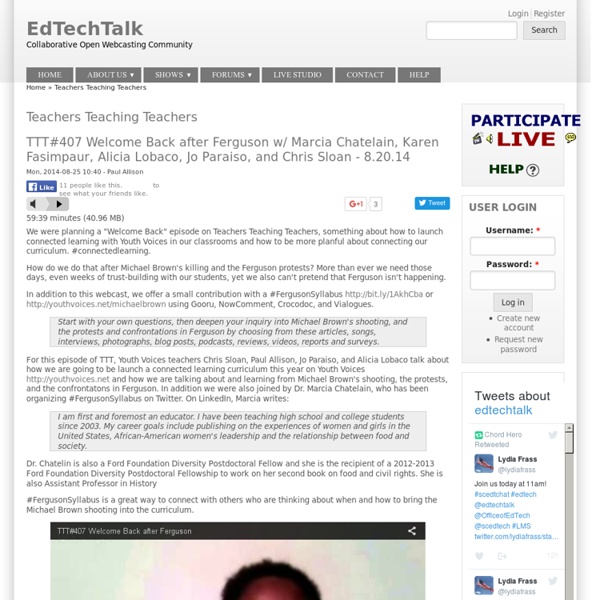always learning
Note: this is the first in a series around my professional learning goal at YIS (more below) At most international schools (and probably most schools in general), each year teachers are asked to create one (or several) goals for the year. In some cases, I’ve had to create three: a personal goal, a team or department goal, and a goal related to a school-wide initiative. Although I always have many ideas for things I want to improve or explore each year, I often find the creation of these types of goals a little artificial. For starters, I pretty much always select a goal I know I will be able to accomplish – something that’s basically part of my job, but maybe a little bit above and beyond. This is not to say that I don’t have my own goals that I’m really interested in or passionate about, just that those usually aren’t the ones I document because they may be too vague, or I’m not sure if I can actually do it, or I don’t know exactly what successful completion of those goals look like.
Improving Teaching Using Technology for Formative Assessment
Improving Teaching Using Technology for Formative Assessment Systematic formative assessment makes a difference in how well students learn. Find out how you can improve teaching and learning by hearing what formative assessment is and the research upon which it is based. Learn how technology tools can improve learning outcomes by providing learning progress information to teachers and to students. A panel of adult educators will share how to implement online and mobile assessment tools into the classroom. Presenters: Dr. Hosts: Ben Bruno and Steve Quann, LINCS Region 1 Professional Development Center, a project of World Education Pre-webinar assignments: TEAL Center Fact Sheet: Formative Assessment
METC EdPlus: METC Virtual Conference 2016
Learn with us through the convenience of your device without the inconvenience or cost of travel! METC is again offering a great way to participate in and enjoy the METC 2016 Conference, even if you can't be there in person. The METC 2016 Virtual Conference will consist of live programming on Tuesday, February 9 and Wednesday, February 10. The presentations chosen for the virtual conference include those from keynote and featured speakers as well as Midwest Spotlight Educators. Selected presentations will be live-streamed at the times listed below. Streaming services provided by Conference Technologies, Inc.The METC Conference Moodle provided by SqoolTechs, LLC.
Home
e-Learning Evangelist
Tech Chick Tips by Anna Adam & Helen Mowers
Workshops for Educators - Technology in Education
Experience the innovative technology in education found at the Google Teacher Academy. The CUE Google Workshop for Educators is now available to any educational institution. Incorporating web-based technology in education has never been easier. Now from only $120 per teacher per day* Brought to you by CUE, the producers of the Google Teacher Academy, the nationally acclaimed Google Workshop for Educators (GWE) introduces participants to innovative ways the Google Suite for Education can be leveraged in education. Full Screen Map A Google Workshop for Administrators is now available as well. CUE's Google Education Trainer Workshop is also now available. Testimonials Google Workshop for Educator evaluation resultsareoverwhelmingpositive, and the comments participants leave speak volumes about the quality of the experience. This is the most valuable workshop I have attended in the last 5 years. This workshop was fabulous. There were so many aspects of Google that I hadn't been aware of.
The Compendium Blog of The A.T.TIPSCAST | Christopher R. Bugaj
Educational Technology and Change Journal
AACE - EdMedia
Vancouver, British Columbia, Canada: June 27-30, 2016 Sheraton Vancouver Wall Centre Hotel Important Documents & Information Register by May 25, 2016 & Save! Special: Emerging Scholar Stream Proceedings Guidelines Conference Poster Conference Call AcademicExperts.org – For planning your schedule, searching all EdMedia conference sessions, and viewing presentation files! Special Interest Groups Call for Papers The Emerging Technologies for Learning and Teaching Special Interest Group (SIG) would like to specifically invite innovators, technology-focused, and visionary people of all educational sectors to present and discuss their results with this SIG during EdMedia 2015. Emerging Technologies SIG Call (PDF) The Learning Design Special interest Group (SIG) has the aim of promoting the discussion of Learning Design that is occurring now in the Higher Education community. Learning Design SIG Call (PDF) Presenter Lounge & Presentation Guidelines for: Papers, etc. Related presentation in PDF
Yong Zhao » Blog Archive » The Medium is the Message: Educating Generation M
Today’s young people (8 to 18 year olds) spend on average 7 hours and 38 minutes a day with media: watching TV (TV, videos, DVDs, pre-recorded shows), playing video games, listening to music, talking on the phone, and chatting with friends online, according to the Kaiser Family Foundation report Generation-M2: Media in the Lives of 8-18 Year-olds released on January 20, 2010. This is an hour more than the group found in 2004, when young people were found to spend nearly 6 and half hours a day on entertainment media. And because of multitasking, young people actually consume a total of 10 hours and 45 minutes worth of media content in those hours. That, indeed, is a lot of hours, practically all their waking hours outside school. In comparison, they spend 25 minutes a day reading books, 9 minutes for magazines, and 3 minutes for newspapers. “The medium is the message,” said Marshal McLuhan. Third, we should also prepare our children to become media producers, not only consumers.



